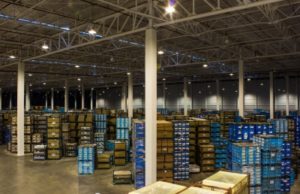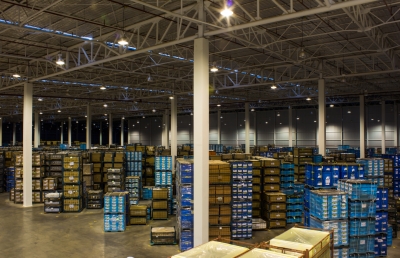 Multinational companies will likely continue to engage the services of customs brokers even if these become optional two years after implementation of the Customs Modernization and Tariff Act (CMTA), according to an executive of a multinational firm.
Multinational companies will likely continue to engage the services of customs brokers even if these become optional two years after implementation of the Customs Modernization and Tariff Act (CMTA), according to an executive of a multinational firm.
Cris John Garcia, import-export manager of snacks company Mondelez Philippines, Inc., which imports numerous containers of cargo weekly, said it would be difficult to “release shipments from the port without a good partner who will do it for me.”
Under the declarant provision of the recently signed CMTA, engaging the services of customs brokers is mandatory within two years of the law’s implementation, after which it becomes optional.
Himself a licensed customs broker, Garcia said the expertise of customs brokers in releasing goods from the Bureau of Customs (BOC) is needed because clearance of shipments is a “complicated” process requiring interpretation of the law.
“So to be able to do it right, we need to tap the services of a subject matter expert, a customs broker,” he told Supply Chain Management Association of the Philippines members at their recent general membership meeting.
Garcia admitted though that there are types of shipments such as balikbayan (personal belongings) boxes, goods of minor or negligible values, and even certain exports that may not need to have customs brokers as declarants.
Customs brokers’ services are not mandatory in many countries, but this is a Philippine requirement under Republic Act (R.A.) No. 9280 or the Customs Brokers Act of 2004.
Asked if the CMTA, which was signed by former President Benigno Aquino III last May, superseded R.A. No. 9280, Garcia said, “Let’s wait for the IRR (implementing rules and regulations of the CMTA).” He acknowledged, however, that, technically, new laws supersede old ones.
He noted three drafts on the declarant provision of the IRR have been released, one each by customs brokers, importers, and the BOC.
The draft by customs brokers requires mandatory use of customs brokerage services except for non-sensitive and non-high-value shipments, where their engagement is optional.
The importers’ draft totally makes services of brokers an option after two years.
The BOC draft requires a subject matter expert or an attorney-in-fact, which can be anyone from the company and is not necessarily a customs broker.
The new administration has recently called for stakeholders’ participation in several consultations on the CMTA’s IRR to be held until December.
Recently, customs brokers reacted negatively to a BOC move to conduct a seminar on customs clearance that did not require the engagement of customs brokers. The BOC said the seminar was to “enable importers and exporters to handle on their own incoming or outgoing shipments without the need of engaging the services of a customs broker, thus, giving them flexibility concerning customs transactions.”
Customs Commissioner Nicanor Faeldon, later in a statement, clarified that the agency is “not eliminating the important role of customs brokers from the BOC’s processes.”
He said the declarant provision under the CMTA “does not intend to eliminate customs brokers from the BOC but makes it optional for the importers and exporters to engage the services of licensed customs brokers when doing transactions with the BOC.”
But Faeldon, even before officially assuming his post as customs chief in July, had already signified his plan to make customs brokerage services discretional, noting that “some unscrupulous brokers are using their services to smuggle commodities (into) the country.” – Roumina Pablo
Image courtesy of photoraidz at FreeDigitalPhotos.net





